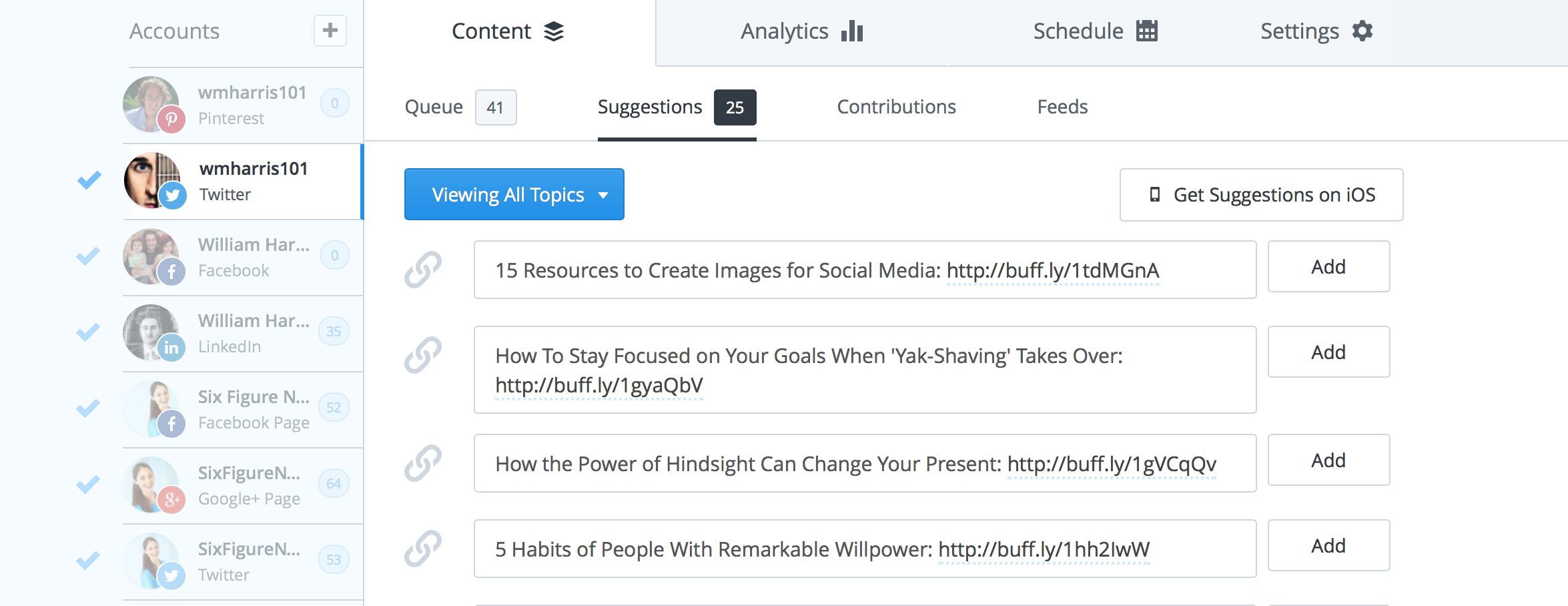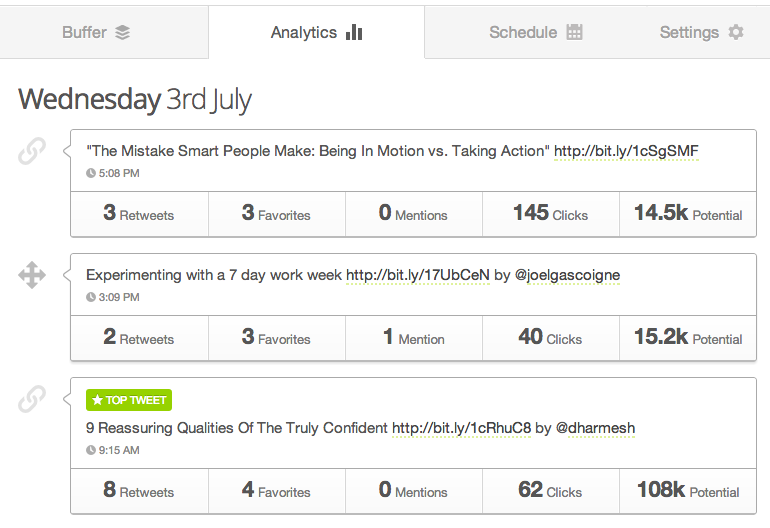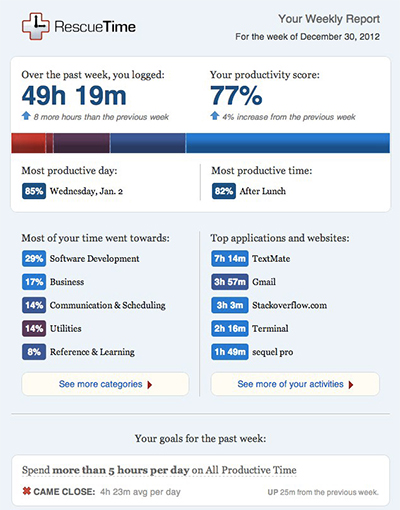The life of an indie authorpreneur is anything but leisurely. There are chapters to be written, blogs to be drafted, social media accounts to be updated, edits to be made, marketing plans to be devised . . . the list continues. No, a writer’s life is not peaceful. But that does not mean it has to be disorganized.
Thankfully, there are app creators out there who have got our backs. Here are three useful web applications that help us stay on track. Bonus: they’re all free to use!
Buffer
We’ve probably boasted about Buffer before, but that’s because we are mildly obsessed with this time-saver—we truly use it on a daily basis, and authors, you should too.
Buffer allows you to schedule your social media posts on sites like Facebook, Twitter, and Pinterest weeks (or even months) in advance.
“Big deal,” you might be thinking, “whether you do it weeks in advance or right in the moment, tweeting and Facebook-ing still takes time.”
And you’re right—unless you’re paying a social media manager or a publicist, maintaining your social media presence is going to take time. But Buffer has unique features such as feeds and suggestions that pull ready-to-post articles from your favorite websites, blogs, and news sources. This content is great for supplementing your own author updates and thoughts, and it really beefs up your online presence.

Much like writing, we’ve found that it is possible to get in a social media flow. Planning tweets and Facebook posts can seem tedious at first, but once you get going, it can be tough to stop.
Buffer is especially helpful for authors because of the built in analytics feature, which helps a user monitor engagement. How many people have clicked on that tweet you just posted? Did you get any retweets or favorites? What is the potential reach of your post? These are all questions you can answer when you start using Buffer!

Trello
This virtual project list is one of our new favorite tools for staying organized. Plus, it will save you from buying stacks upon stacks of Post-It notes.
The site uses a system of boards and lists to help keep your goals clear. Users can create separate boards for each of their ongoing projects. Within these boards, users compile themed lists for each stage of the project’s completion. For example, an indie author might have a board for her upcoming book, O is for Organization. Within this board, she may have task lists for editing, marketing, social media, and the launch party.

The best part: you can schedule “due dates” for each of the tasks on your lists. The site also includes a calendar feature for all the visual planners out there. You can attach images, add labels, and employ filters for each of the tasks as well!
If you’re working on a project with a group, you can also invite friends to edit your boards and lists. This aspect makes Trello great for businesses too!
RescueTime
Authors: it’s time to analyze your “productivity” time. We probably all suspect we could be a little more on-task during work hours, but our “ignorance is bliss” methods have got to go. With RescueTime there’s no more hiding— this app monitors the amount of time users spend on each website they have open in order to help users better understand their daily Internet habits.
Results are available at any time by accessing the dashboard feature of the app. Here, a user can see the breakdown of their time spent online. The app also condenses its findings and sends users weekly usage reports via email.

Best of all, RescueTime helps users change unproductive use habits by creating usage goals and progress statistics based on the previous week.
Readers: what tech tools keep you on track? Share your tricks in the comment section below!

